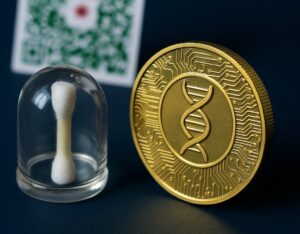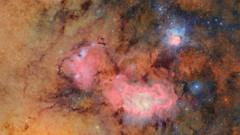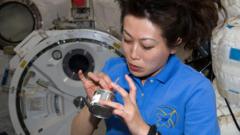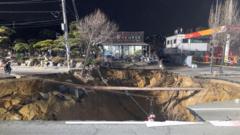Scientists have discovered vital life-building components in samples from asteroid Bennu, suggesting asteroids may have seeded Earth with the essentials for life.
Asteroid Bennu's Dust Offers Clues to Life’s Building Blocks
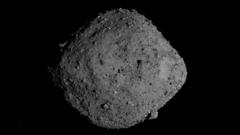
Asteroid Bennu's Dust Offers Clues to Life’s Building Blocks
Astrobiology Insights from NASA’s Recent Findings on Asteroid Bennu.
In a groundbreaking study, researchers have unveiled that asteroid Bennu, a 500-meter-wide celestial body, contains significant building blocks of life. This remarkable finding was based on analysis of samples collected by NASA's Osiris Rex spacecraft and returned to Earth in 2023. These samples, though small—around 120 grams—are rich in minerals and thousands of organic compounds, including amino acids and nucleobases essential for proteins and DNA composition.
The discovery indicates that while there is no evidence of life existing on Bennu, the asteroid's organic material supports theories proposing that similar celestial bodies may have delivered life's key ingredients to Earth billions of years ago. Prof. Sara Russell, a mineralogist at the Natural History Museum in London, expressed excitement about the findings, noting how they inform the scientific community about the origins of life and the potential for understanding life beyond Earth.
Published in the journal Nature, the research reveals that Bennu's dust is abundant in nitrogen and carbon-rich compounds, including 14 of the 20 amino acids utilized by Earth’s life forms and all four nucleobases crucial for DNA structuring. Additionally, the presence of various minerals and salts indicates that water may have existed on the asteroid at some point.
The analysis also highlighted the significance of ammonia in the sample, which plays a vital role in many biochemical processes. While some of these compounds have been encountered in other meteorites, the unique combinations observed in Bennu's dust are unprecedented, according to Prof. Russell.
Dr. Ashley King from the Natural History Museum elaborated that the early solar system experienced such turbulence that numerous asteroids similar to Bennu bombarded Earth, potentially ‘seeding’ it with the ingredients necessary for oceans and life. Though Earth is the only known world harboring life so far, the research opens the discussion about the presence of similar materials on other planets within our solar system.
Moving forward, scientists are set to delve deeper into the remaining samples from Bennu, enhancing our understanding of these celestial rocks and their role in the broader narrative of life in the universe. The quest to answer fundamental questions about life's origins continues, signifying many years of research ahead in both the study of asteroid dust and the exploration of our cosmic neighborhood.
The journey into astrobiology has only just begun, emphasizing the importance of these findings in understanding our past and possibly unraveling the complexities of life beyond Earth.
The discovery indicates that while there is no evidence of life existing on Bennu, the asteroid's organic material supports theories proposing that similar celestial bodies may have delivered life's key ingredients to Earth billions of years ago. Prof. Sara Russell, a mineralogist at the Natural History Museum in London, expressed excitement about the findings, noting how they inform the scientific community about the origins of life and the potential for understanding life beyond Earth.
Published in the journal Nature, the research reveals that Bennu's dust is abundant in nitrogen and carbon-rich compounds, including 14 of the 20 amino acids utilized by Earth’s life forms and all four nucleobases crucial for DNA structuring. Additionally, the presence of various minerals and salts indicates that water may have existed on the asteroid at some point.
The analysis also highlighted the significance of ammonia in the sample, which plays a vital role in many biochemical processes. While some of these compounds have been encountered in other meteorites, the unique combinations observed in Bennu's dust are unprecedented, according to Prof. Russell.
Dr. Ashley King from the Natural History Museum elaborated that the early solar system experienced such turbulence that numerous asteroids similar to Bennu bombarded Earth, potentially ‘seeding’ it with the ingredients necessary for oceans and life. Though Earth is the only known world harboring life so far, the research opens the discussion about the presence of similar materials on other planets within our solar system.
Moving forward, scientists are set to delve deeper into the remaining samples from Bennu, enhancing our understanding of these celestial rocks and their role in the broader narrative of life in the universe. The quest to answer fundamental questions about life's origins continues, signifying many years of research ahead in both the study of asteroid dust and the exploration of our cosmic neighborhood.
The journey into astrobiology has only just begun, emphasizing the importance of these findings in understanding our past and possibly unraveling the complexities of life beyond Earth.


